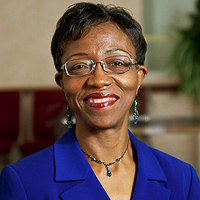iTunes | Google Play | RSS (Soundcloud) | Stitcher
Welcome to the Ada Lovelace Day podcast, highlighting the work of women in STEM. Each month, we talk to women from around the STEM world about their careers, as well as talking to women and men, about historic and modern women’s achievements, discoveries, and inventions.
In this episode
00:34: Neuroscientist Professor Sophie Scott explains how our voices tell others more about us than we might realise!
28:35: We find out more about Dr Betty Harris’s spot test for the explosive TATB, used now in airports and for cleaning up the environment.
32:19: Science writer Simon Singh tells us the story of two incredible women, French mathematician Sophie Germain and American astronomer Henrietta Swan Leavitt.
Our interviewees
Professor Sophie Scott
Professor Sophie Scott is a cognitive neuroscientist as University College London who studies the neurobiology of speech perception, including the evolution of speech, the difference between intelligibility and comprehension, and profiles of recovery in aphasia (where a patient has difficulty understanding or producing speech). She also works on dyslexia and the processing of emotional information in the voice, but is most well known for her work on laughter.
is a cognitive neuroscientist as University College London who studies the neurobiology of speech perception, including the evolution of speech, the difference between intelligibility and comprehension, and profiles of recovery in aphasia (where a patient has difficulty understanding or producing speech). She also works on dyslexia and the processing of emotional information in the voice, but is most well known for her work on laughter.
Sophie’s Ada Lovelace Day Live 2013 talk on laughter can be watched on YouTube and at the bottom of this page. Her TED talk has been viewed 2.5 million times, and she gave an hour-long lecture on the subject in 2015 lecture for The Physiological Society.
Sophie has more information about her research and publications on her website, and you can follow her on Twitter @sophiescott.
Simon Singh
Simon Singh is a science writer who lives in London. After completing a PhD in particle physics at the University of Cambridge and CERN, he joined the BBC and won a BAFTA for his documentary about Fermat’s Last Theorem. He has since written four bestselling science books (and co-authored one moderate-seller), including Fermat’s Last Theorem, the first book about mathematics to become a No.1 bestseller. His other books are The Code Book, Big Bang, Trick or Treatment? and The Simpsons & Their Mathematical Secrets.
is a science writer who lives in London. After completing a PhD in particle physics at the University of Cambridge and CERN, he joined the BBC and won a BAFTA for his documentary about Fermat’s Last Theorem. He has since written four bestselling science books (and co-authored one moderate-seller), including Fermat’s Last Theorem, the first book about mathematics to become a No.1 bestseller. His other books are The Code Book, Big Bang, Trick or Treatment? and The Simpsons & Their Mathematical Secrets.
He is also founder of GOOD THINKING, a charity that promotes science and challenges pseudoscience, and one its main ongoing projects aims to stretch strong mathematicians in secondary schools from age eleven upwards. Between 2008 and 2013, after being sued for libel, Simon was a leading figure in the libel reform movement that campaigned for free speech, and which resulted in the Defamation Act 2013.
You can find out more about Simon on his website, and can follow him on Twitter @SLSingh.
 Discovery of the month
Discovery of the month
This month we look at the invention of a spot test for the explosive TATB by Dr Betty Harris, which not only helps us to clean up the environment, but is also used to check for explosives at airport security.
Thanks to our sponsor
This podcast is brought to you thanks to the generous support of ARM, our exclusive semiconductor industry sponsor. You can learn more about ARM on their website at ARM.com and you can follow them on Twitter at @ARMHoldings.
If you would like to join ARM as a sponsor of the Ada Lovelace Day Podcast, please email us.
Get in touch!
If you’d like to send us feedback about the show, or if you’d like to take part, please email us. We’re especially interested in hear from men who would like to talk to us about the women in STEM who have influenced them, especially those women who are less well known.
Credits
Episode edited by Andrew Marks.